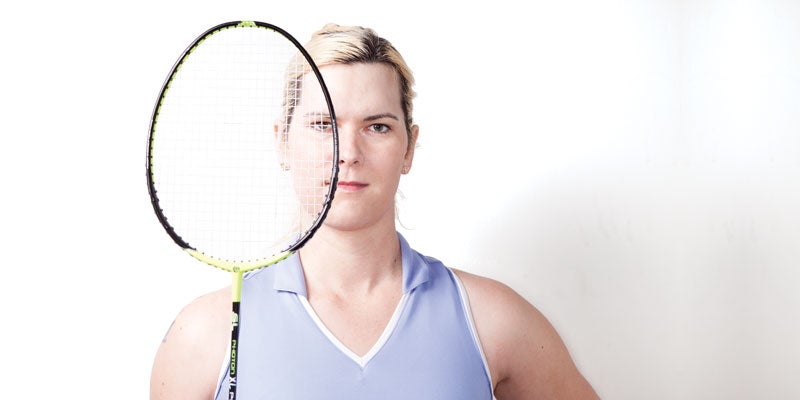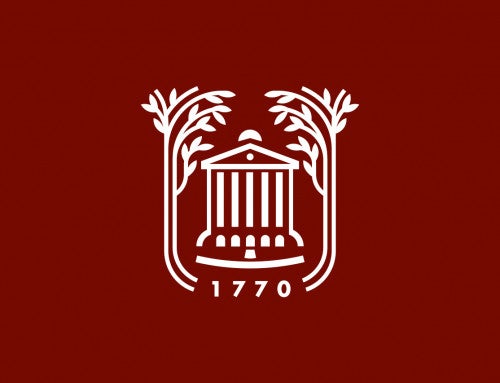Whatever you do, don’t call it a birdie. It’s just a bird. Or you can call it a shuttle, or even a shuttlecock, if you must.
In the world of competitive badminton, players like Rachel McKinnon don’t have time for extra syllables – they like to keep the terminology short and sweet.
“It’s pretty much the fastest sport,” says McKinnon, an assistant professor in the College’s Department of Philosophy who began teaching at the College last fall.
Of course, knowing the lingo will only get you so far. With a shuttle coming off an opponent’s racquet at speeds up to 300 mph, you have to be nimble and brave to stand a chance of winning a rally. That means training incessantly, playing smart and possessing cat-like reflexes: requirements that don’t faze McKinnon one bit.
Very little does, in fact. Case in point: Her favorite training exercise is challenging three opponents all by her lonesome self.
In that situation, she says, “you shouldn’t be able to win. You’re always under pressure.”
As a teenager in Victoria, British Columbia, McKinnon was a provincial badminton champ entertaining thoughts of embarking on a professional career in the sport. When a car accident resulting in severe injuries sidelined her at age 16, however, her chance for professional badminton glory slipped away.
But McKinnon kept on, eventually becoming a competitive player again as she completed bachelor’s and advanced degrees in philosophy across the country, with stops at universities in Victoria, Halifax, Waterloo (Ontario) and finally Calgary, where many of Canada’s top badminton players live and train.
And badminton was hardly the only contest in which she thrived. During her years as a student, McKinnon accrued some considerable poker winnings, mostly in online games. In fact, after earning her master’s degree, McKinnon even took a break from schooling and played poker professionally for two years.
“That was my primary income for eight years,” says McKinnon, noting that poker winnings are not taxed in Canada.
Such money has helped finance McKinnon’s badminton’s expenses, which are significant. The costs of coaches, court fees and travel expenses add up, as does equipment, which is prone to wear. McKinnon laments how her badminton shoes with special rubber soles wear out within months, high-strung racquets regularly break and shuttles of cork and goose feathers rarely survive an entire match.
“Some of us try to buy in bulk,” says McKinnon. “If a friend goes over to China, they’ll bring back a box. I’m not kidding!”
So, if you’re heading to China any time soon, you might consider picking up a box of what McKinnon says is the most precious commodity: high-quality birdies – ahem, birds.
Whatever you do, don’t call them birdies.
This article originally appeared in the spring 2015 issue of the College of Charleston employee newsletter, Portico.





